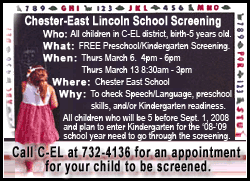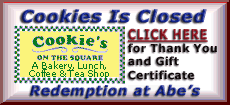 Review by Review by
Richard SumrallDespite the changes in seeking employment,
most businesses still require a resume from applicants. One of the most
effective ways to get your resume noticed is the cover letter. In his new
book, "202 Great Cover Letters," Michael Betrus explains the importance of
this document of introduction: "A great cover letter is the best way to show
prospective employers who you are and what you can offer."
The book is a comprehensive guide and includes valuable tips, tricks and
samples suitable for recently graduated students, people who are out of work
or anyone contemplating a career change. Seventeen chapters contain
information on the construction of cover letters for almost any kind of
employment opportunity.
Let's look at some of those chapters.

"Street Smart Writing Tips"
In this chapter, Betrus offers important advice on writing a cover
letter. Generally, a shorter letter is better than a longer letter, and a
good rule of thumb is to keep all sentences to 23 or fewer words. Avoid
overusing the "I" with some creative word play. For example, instead of, "I
will call you Monday," try, "Please expect my call on Monday." Be sure not
to overcapitalize words for emphasis or impact -- only proper nouns should
be capitalized. For an eye-pleasing letter, pay close attention to the
format. Margins, paragraphs, fonts and choice of paper are details that can
encourage your submission to be read by the recipient.
"Broadcast Letters"
A broadcast letter is a "hybrid between a resume and a cover letter." It
is usually best for applicants who do not include a resume as part of their
job search. These kinds of letters do have certain advantages. Since they
appear more as a letter of communication than a resume, they have a greater
chance of being read, especially if the recipient is a screening authority.
Maintaining a degree of anonymity if you are currently employed elsewhere is
another advantage; broadcast letters usually do not delve into the issue of
your current employment status. The secret of a good broadcast letter is to
write it for a hiring manager rather than a recruiter. This gives you an
opening to describe your job specialties or express interest in a particular
position.
[to top of second column]
 |

"Letters for Students"
The first job is always the most difficult to obtain.
Fortunately, the student's cover letter is not necessarily different
from any other letter. One type of student cover letter may depend
on the presence of companies during campus recruiting visits.
Letters may also be composed for a different kind of campus activity
-- the career fair. Regardless of the circumstances, a student's
cover letter should always include the introductory elements
(heading, date, company name, salutation) and what Betrus calls,
"the power introduction." The power introduction is the
attention-grabber that hopefully will pique the reader's interest
and explain why you are submitting an application.
Today's employers are requiring that cover letters and resumes be
sent to them via e-mail. Common-sense rules should always apply when
using the e-mail option, namely a proper e-mail address, precise
subject line and logical content. Never send a cover letter with an
inappropriate e-mail address such as "sexything123@..." or
"hire4success@... ." Any student's cover letter should end with an
enthusiastic "call to action," in other words, an invitation by the
applicant to engage the recipient in the next phase of the hiring
process ("Please expect my telephone call next week so that we might
set up a time to meet...").

"202 Great Cover Letters" is a well-written and helpful guide for
anyone needing assistance in writing that breakthrough cover letter
for introduction to a prospective employer or as part of a resume.
The book "delivers a treasure trove of sample cover letters that
will get you noticed whether you are applying online or in person."
This book is recommended to anyone seeking first-time employment or
a change in his or her employment status.
[Text from file received
from Richard Sumrall,
Lincoln Public Library District]

 |